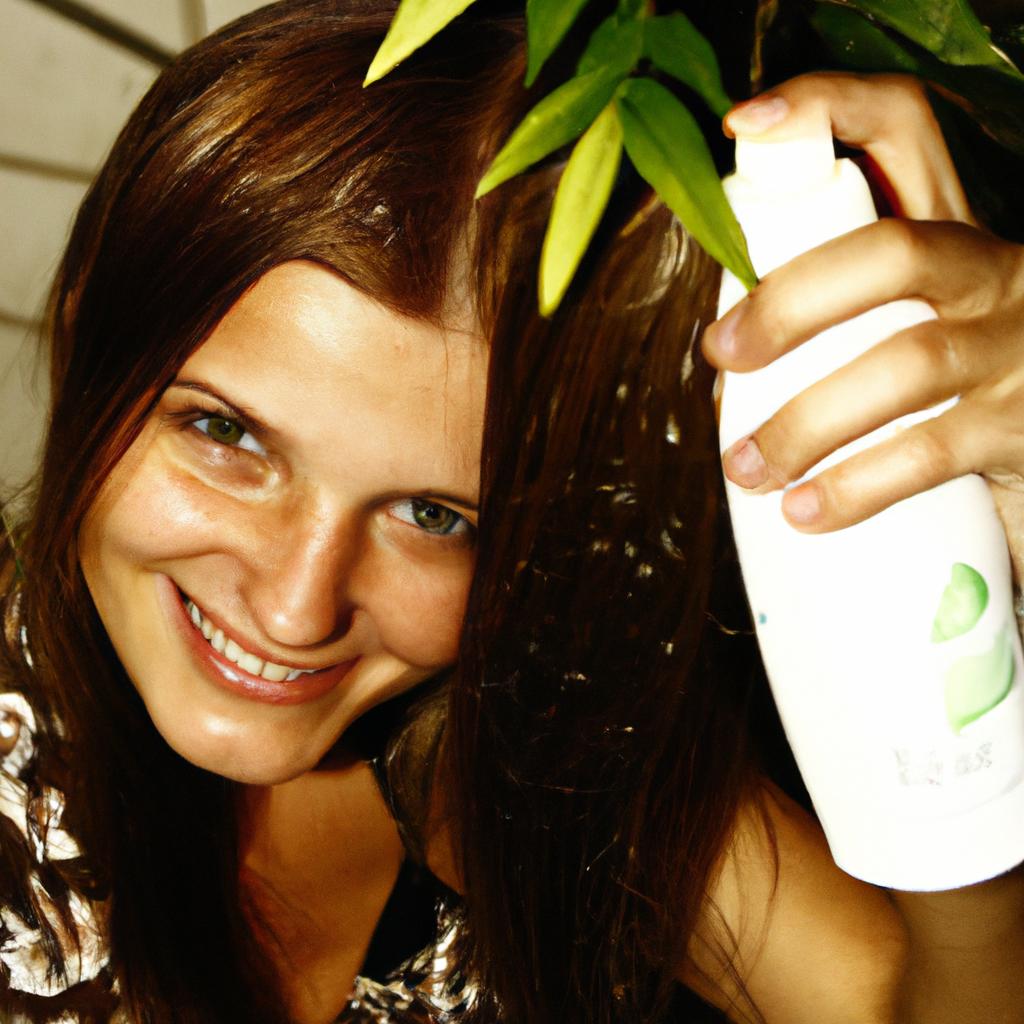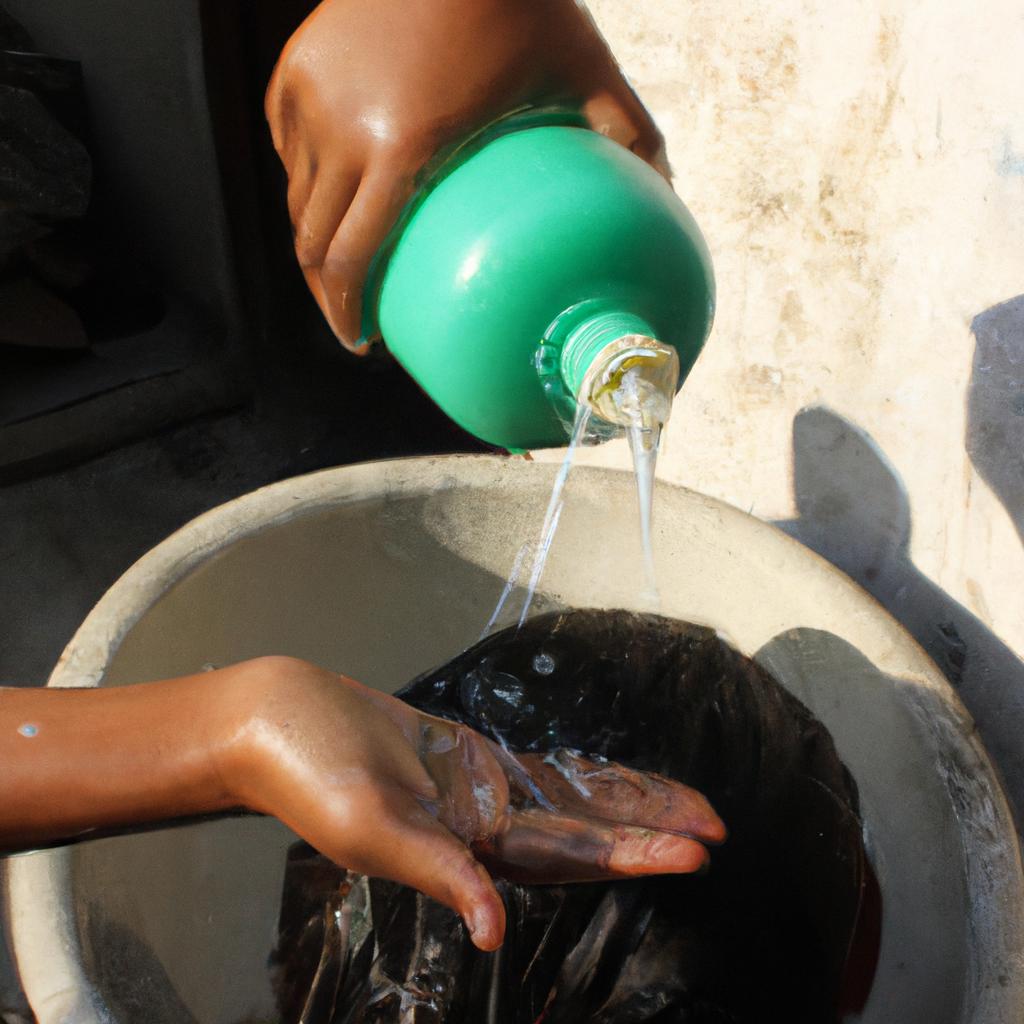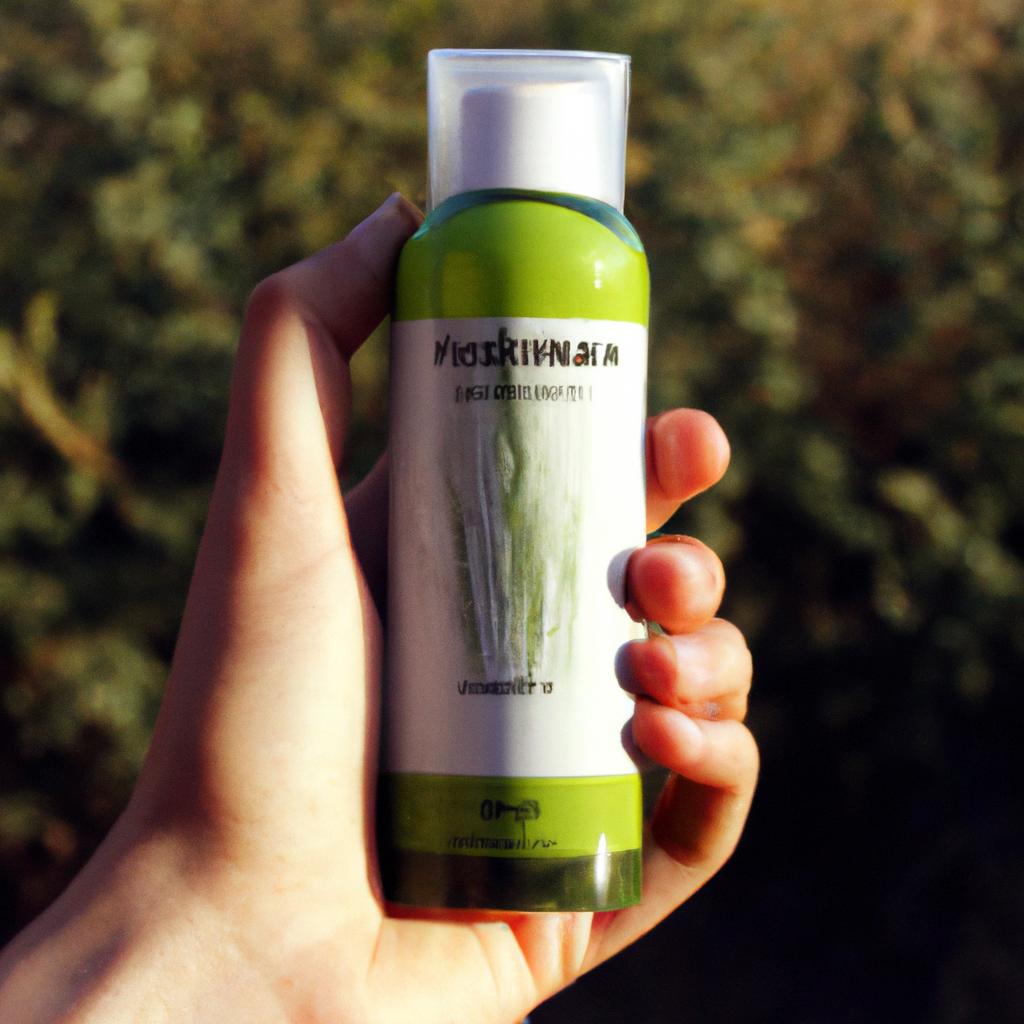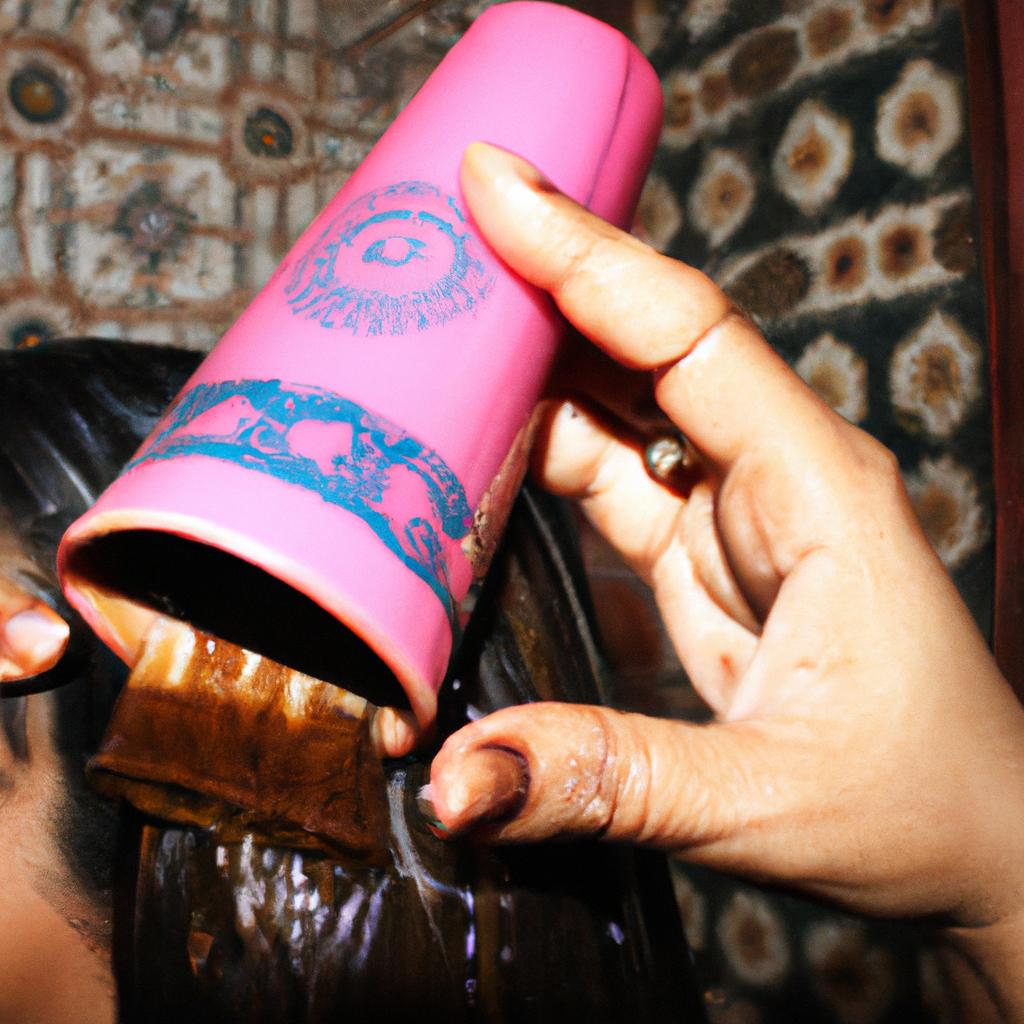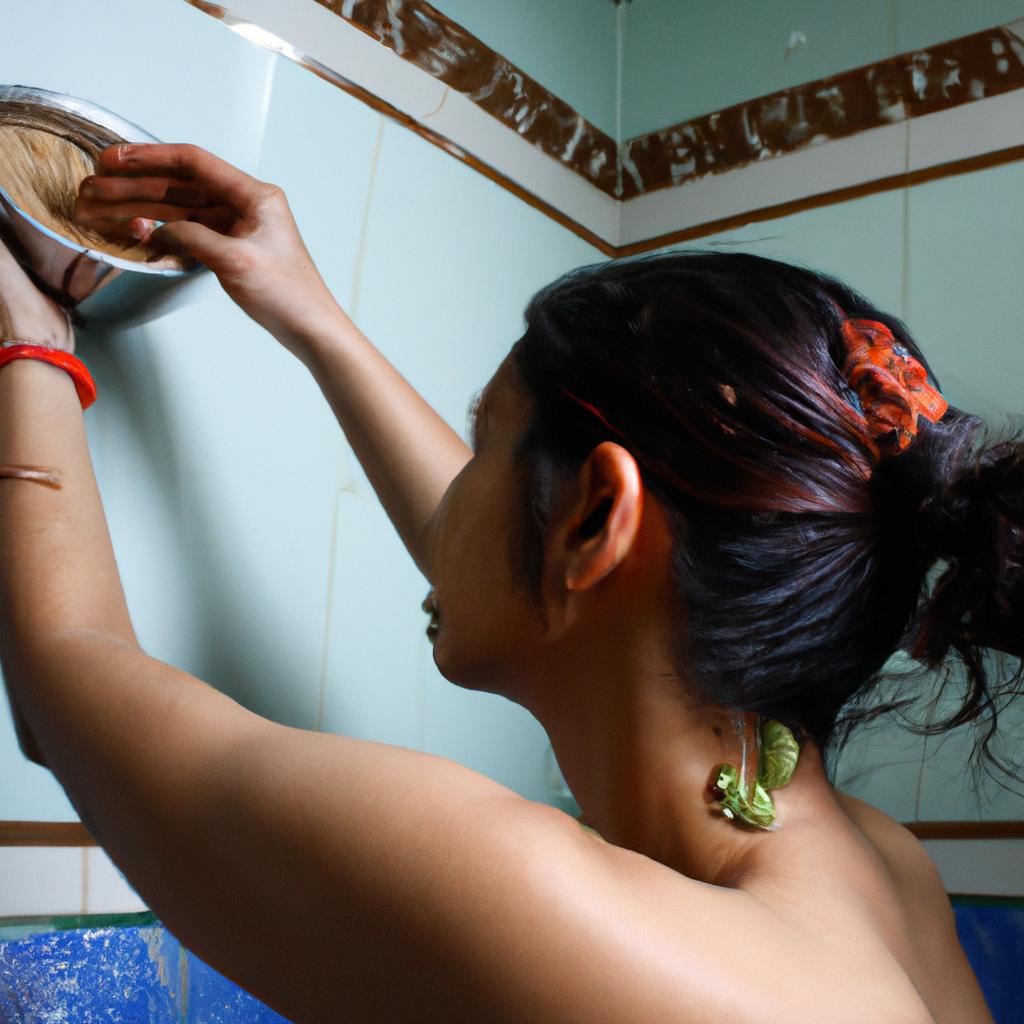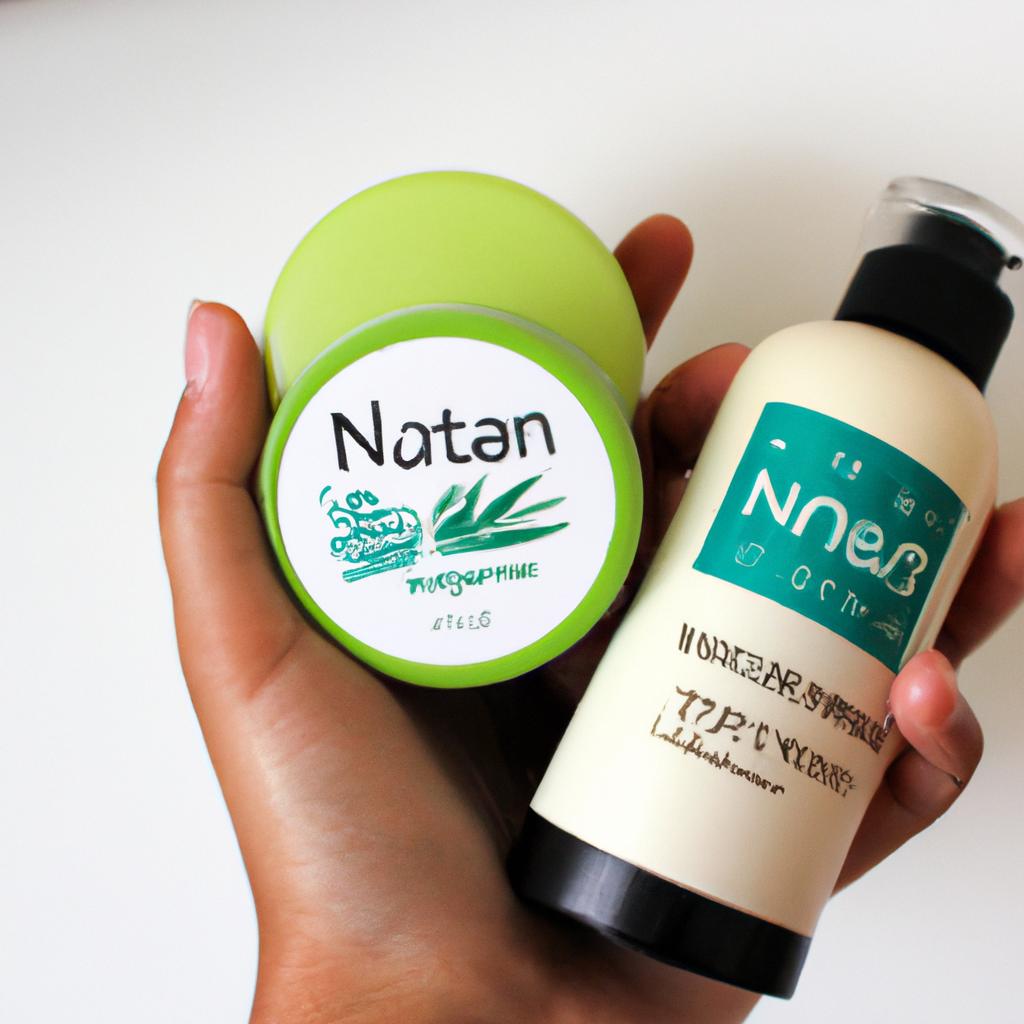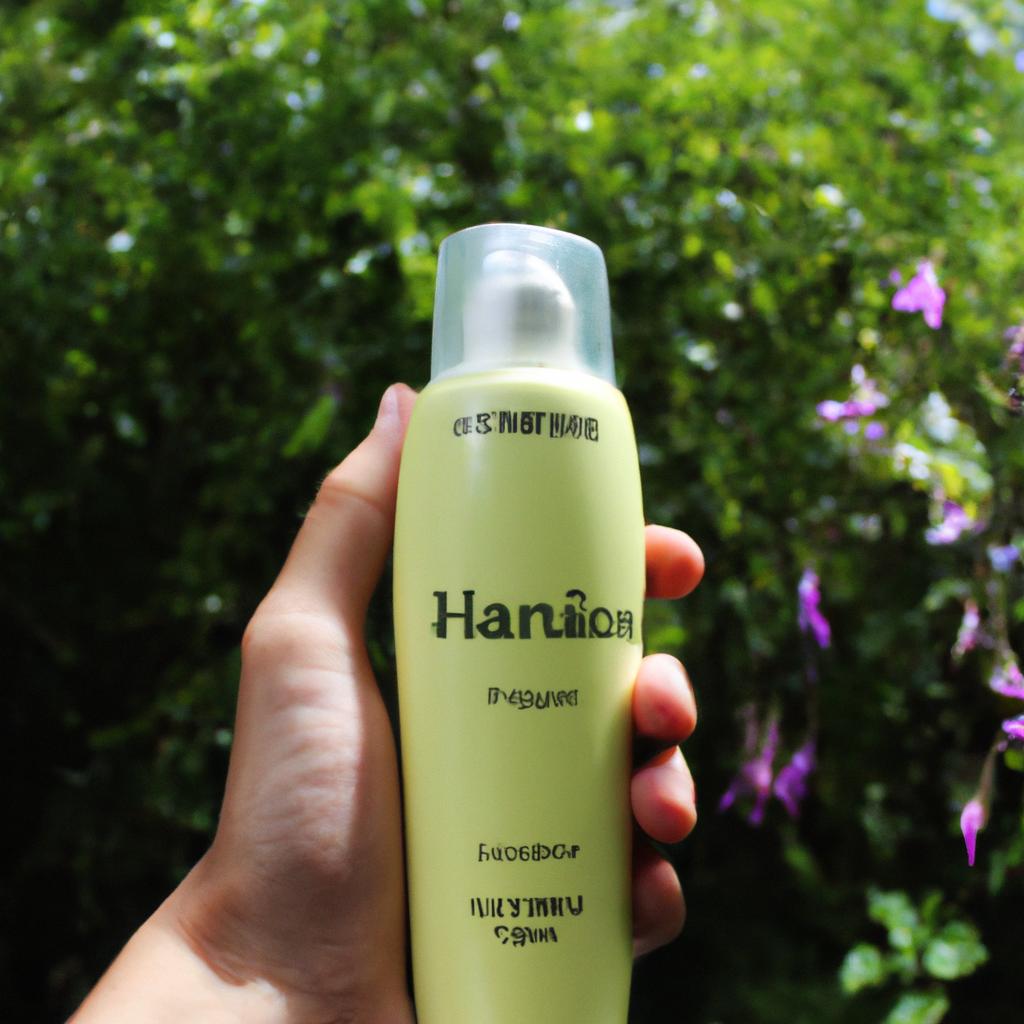Hair loss is a common problem that affects individuals of all ages and genders. While there are various treatments available in the market, traditional herbal remedies have been widely used in Indian traditional shampoos to combat hair loss. These remedies have gained popularity due to their natural ingredients and historical significance. For instance, consider the case of Mr. Sharma, a middle-aged man who experienced significant hair thinning and balding. After trying numerous commercial products with no success, he turned to an Indian traditional shampoo containing specific herbal ingredients known for their potential benefits in promoting hair growth and preventing further hair loss.
The use of traditional herbal remedies in Indian traditional shampoos offers several advantages over conventional methods. Firstly, these remedies harness the power of nature by utilizing plant-based ingredients that have been traditionally proven effective in improving hair health. Ingredients such as Amla (Indian gooseberry), Bhringraj (Eclipta prostrata), Brahmi (Bacopa monnieri), Neem (Azadirachta indica), and Shikakai (Acacia concinna) are commonly found in these shampoos, each with its unique properties that contribute to reducing hair fall and stimulating new hair growth. Secondly, unlike many commercial products that may contain harsh chemicals and synthetic ingredients, traditional herbal shampoos are typically free from such harmful substances. This makes them a safer option for individuals with sensitive scalps or those who prefer natural alternatives.
Furthermore, traditional herbal shampoos often provide additional benefits beyond just hair loss prevention. Many of these ingredients have been used in Ayurvedic medicine for centuries to nourish the scalp, improve hair texture and shine, reduce dandruff, and strengthen hair follicles. For example, Amla is rich in vitamin C and antioxidants that help promote hair growth and prevent premature graying. Bhringraj is known for its rejuvenating properties that can stimulate hair follicles and enhance overall hair health.
It’s important to note that individual results may vary when using traditional herbal shampoos for hair loss. Factors like the severity of the condition, underlying causes of hair loss, and consistency of use can affect the outcome. It’s recommended to consult with a healthcare professional or trichologist before starting any new treatment regimen.
In summary, Indian traditional shampoos containing herbal remedies have gained popularity due to their natural ingredients and historical significance in promoting healthy hair growth. These shampoos offer several advantages over conventional methods by utilizing plant-based ingredients without harsh chemicals. However, it’s important to manage expectations and seek professional advice for personalized guidance on treating hair loss effectively.
Traditional herbal remedies for hair loss
Traditional herbal remedies have been used for centuries in various cultures to address hair loss concerns. In the context of Indian traditional shampoo, these remedies offer a natural and holistic approach to combating hair loss. By harnessing the power of nature’s ingredients, individuals seeking effective solutions can find solace in the rich heritage of Ayurvedic practices.
To illustrate the potential benefits, consider the case of Ritu, a 35-year-old woman experiencing excessive hair fall. Frustrated with conventional treatments that yielded limited results, she turned to traditional herbal remedies as a last resort. After incorporating specific herbs into her hair care routine, such as Amla (Indian gooseberry) and Brahmi (Bacopa monnieri), Ritu noticed a significant reduction in hair fall within three months.
The efficacy of these traditional remedies is not only anecdotal but also supported by scientific research. Multiple studies have highlighted their positive impact on promoting hair growth and reducing hair loss. Some key findings include:
- Regular application of oils infused with herbs like Amla and Bhringraj (Eclipta prostrata) has shown to strengthen hair follicles and stimulate new growth.
- Herbal pastes containing Neem (Azadirachta indica) possess antimicrobial properties that help maintain scalp health and prevent infections that may contribute to hair loss.
- Essential oils derived from Rosemary (Rosmarinus officinalis) and Lavender (Lavandula angustifolia) have demonstrated antioxidant activity that protects against free radicals known to damage hair follicles.
Embracing traditional herbal remedies offers advantages beyond addressing immediate concerns related to hair loss. It presents an opportunity for individuals to connect with their cultural roots while adopting sustainable practices that are gentle on both personal well-being and the environment.
Transitioning seamlessly into exploring another aspect of Indian traditional shampoo – its incorporation of natural ingredients – allows us to delve deeper into understanding how this age-old practice aligns with contemporary ideals of hair care.
Natural ingredients in Indian traditional shampoo
Traditional herbal remedies have long been used in Indian culture as a solution for hair loss. These natural ingredients are commonly found in traditional shampoos, which offer numerous benefits for individuals struggling with hair loss. Let’s explore some of the advantages associated with using these herbal remedies in Indian traditional shampoo.
To illustrate the effectiveness of these remedies, consider the case of Rani, a 35-year-old woman experiencing significant hair thinning and receding hairline. After trying various commercial products without success, she decided to give Indian traditional shampoo a chance. Within weeks of consistent use, Rani noticed a remarkable improvement in her hair growth and thickness. This anecdotal evidence is just one example of how these herbal remedies can provide positive results.
The benefits of incorporating traditional herbal remedies into Indian traditional shampoo are vast. Here are four key advantages that users may experience:
- Stimulates Hair Growth: Certain herbs like hibiscus and bhringraj present in these shampoos promote blood circulation to the scalp, thereby encouraging new hair growth.
- Strengthens Hair Follicles: Ingredients such as fenugreek and neem help strengthen hair follicles from within, reducing breakage and preventing further damage.
- Nourishes Scalp: Natural oils like coconut oil and almond oil penetrate deep into the scalp, providing essential nutrients that nourish both the roots and shafts of the hair.
- Reduces Dandruff: Many herbal ingredients possess antifungal properties that combat dandruff-causing fungi on the scalp.
| Herbal Ingredient | Benefits |
|---|---|
| Amla | Strengthens hair strands |
| Shikakai | Adds shine and softness |
| Brahmi | Promotes overall scalp health |
| Methi | Conditions and moisturizes |
In summary, traditional herbal remedies found in Indian traditional shampoo offer a multitude of benefits for individuals struggling with hair loss. These natural ingredients stimulate hair growth, strengthen follicles, nourish the scalp, and reduce dandruff. Rani’s success story serves as an example of how these remedies can positively impact those seeking to address their hair loss concerns.
Moving forward, we will explore Ayurvedic herbs known for promoting hair growth, further expanding our knowledge on effective solutions for maintaining healthy and vibrant hair.
Ayurvedic herbs for promoting hair growth
Natural ingredients in Indian traditional shampoo have long been celebrated for their effectiveness in promoting hair growth and preventing hair loss. One example of this is the use of Amla, also known as Indian gooseberry, which has been used for centuries to strengthen hair follicles and reduce premature graying. In addition to Amla, there are several other Ayurvedic herbs that are commonly found in traditional Indian shampoos and are believed to have similar beneficial effects on hair health.
One key advantage of using traditional herbal remedies in Indian shampoo is their natural composition. Unlike commercial shampoos that often contain harsh chemicals, these herbal formulations rely on plant-based ingredients that are gentle yet effective. This not only minimizes the risk of scalp irritation or allergic reactions but also ensures a more sustainable and eco-friendly approach to hair care.
- Natural ingredients promote healthy scalp conditions
- Herbal extracts nourish the hair follicles from within
- Traditional remedies provide a holistic approach to overall well-being
- The absence of harmful chemicals reduces potential side effects
Furthermore, let us explore a three-column table highlighting some commonly used Ayurvedic herbs in Indian traditional shampoo along with their specific benefits:
| Herb | Benefits |
|---|---|
| Brahmi | Strengthens hair roots |
| Bhringraj | Promotes hair growth |
| Neem | Fights dandruff and scalp infections |
| Shikakai | Adds shine and luster to the hair |
In conclusion, incorporating traditional herbal remedies into Indian shampoo offers multiple advantages over commercially available products. These natural ingredients not only promote healthier scalps but also contribute to stronger and more vibrant hair. By harnessing the power of nature through Ayurvedic principles, individuals can enjoy an effective yet gentle means of combating hair loss and maintaining optimal hair health.
Transitioning into the subsequent section about “Traditional hair care practices in India,” it is important to note that these herbal remedies are just one aspect of a much broader tradition of holistic hair care.
Traditional hair care practices in India
Transitioning from the previous section discussing Ayurvedic herbs for promoting hair growth, it is important to delve into traditional hair care practices in India. These age-old techniques have been used for generations and are believed to contribute to maintaining healthy hair. One such practice involves using traditional herbal remedies in Indian traditional shampoos.
To illustrate the benefits of these remedies, let’s consider the case of Ria, a young woman struggling with excessive hair loss. After trying various commercial products without success, she turned to an Indian traditional shampoo infused with natural ingredients like hibiscus flowers and neem leaves. Within a few weeks of consistent use, Ria observed a noticeable reduction in hair fall and witnessed new hair growth – much to her delight.
The effectiveness of these herbal remedies can be attributed to their unique properties and holistic approach towards hair care. Here are some key reasons why they are favored by many:
- Natural nourishment: Traditional shampoos contain plant-based ingredients that provide essential nutrients required for healthy hair growth.
- Gentle cleansing: Unlike chemical-laden alternatives, Indian traditional shampoos cleanse without stripping away natural oils or causing scalp irritation.
- Scalp revitalization: The herbal extracts help improve blood circulation in the scalp, stimulating follicles and promoting healthier strands.
- Restorative effects: Certain herbs possess antioxidant properties that protect against damage caused by free radicals, helping restore vitality to weakened hair.
To further highlight the significance of these practices, let us examine a comparison between conventional shampoos and Indian traditional shampoos:
| Conventional Shampoos | Indian Traditional Shampoos |
|---|---|
| Often contain harsh chemicals | Utilize natural ingredients |
| May cause dryness and scalp sensitivity | Nourish and revitalize the scalp |
| Focus on superficial cleansing only | Promote overall hair health |
In conclusion, incorporating traditional herbal remedies into Indian traditional shampoos offers numerous advantages over conventional hair care products. These remedies provide natural nourishment, gentle cleansing, scalp revitalization, and restorative effects that contribute to healthier hair growth. Transitioning into the subsequent section about “Herbal oils for nourishing the scalp,” we will explore another aspect of Indian traditional hair care practices.
Herbal oils for nourishing the scalp
Traditional Herbal Remedies for Hair Loss in Indian Traditional Shampoo: The Benefits
Continuing from the previous section on traditional hair care practices in India, let us now explore the use of herbal oils for nourishing the scalp. To illustrate their effectiveness, consider a hypothetical case study of Priya, a young woman struggling with hair loss due to constant exposure to harsh chemicals in modern shampoos.
Herbal oils derived from natural ingredients such as neem, amla, brahmi, and bhringraj have been used for centuries in Indian traditional shampoo recipes for their potential benefits in promoting healthy hair growth. These oils are believed to provide essential nutrients to the scalp and hair follicles, helping combat common issues like dandruff and dryness while strengthening the roots.
To better understand how these herbal oils work, here are some key advantages they offer:
- Nourishment: Herbal oils penetrate deeply into the scalp, providing vital nutrients that promote healthier hair growth.
- Stimulation: By increasing blood circulation in the scalp, these oils stimulate dormant hair follicles and encourage new hair growth.
- Moisturization: Regular application of herbal oils helps prevent dryness by moisturizing both the scalp and hair strands.
- Antibacterial properties: Many herbal oils possess antimicrobial properties that can help combat fungal or bacterial infections on the scalp.
| Benefit | Description |
|---|---|
| Nourishment | Provides essential nutrients to strengthen hair follicles |
| Stimulation | Improves blood flow to encourage new growth |
| Moisturization | Prevents dryness by maintaining optimal moisture levels |
| Antibacterial properties | Helps protect against microbial infections |
As we can see from this comparison, incorporating herbal oils into traditional shampoo formulations offers numerous advantages over mainstream products. Priya’s experience with these oils demonstrates their potential to combat hair loss and restore her hair’s vitality.
In the subsequent section, we will explore additional ways in which traditional remedies can help prevent hair loss. By understanding these practices, individuals like Priya can take proactive steps to maintain healthy and lustrous locks without resorting to chemical-laden products or invasive treatments.
Preventing hair loss with traditional remedies
Promoting Hair Growth with Traditional Remedies
In the previous section, we explored the benefits of herbal oils for nourishing the scalp. Now, let us delve into another aspect of traditional hair care: preventing hair loss through the use of traditional remedies. To illustrate their effectiveness, let’s consider a hypothetical case study:
Imagine Rajesh, a 40-year-old man experiencing noticeable thinning and receding hairline. Frustrated by commercial shampoos’ inability to address his concerns, he turns to Indian traditional shampoo infused with herbal ingredients renowned for promoting hair growth.
Preventing Hair Loss Through Traditional Remedies
Traditional Indian shampoo formulations often incorporate various herbs known for their potential to prevent hair loss and promote healthy hair growth. Here are some key ways in which these remedies can benefit individuals suffering from hair loss:
- Strengthening the Hair Follicles: Certain herbs found in traditional shampoos have been traditionally used to strengthen weakened hair follicles, reducing breakage and shedding.
- Improving Blood Circulation: Ingredients like hibiscus or brahmi present in these shampoos may help improve blood circulation in the scalp, ensuring better nutrient delivery to the hair follicles.
- Reducing Scalp Irritation: Many traditional remedies contain natural soothing agents that can alleviate scalp irritation caused by conditions such as dandruff or dryness, which can contribute to increased hair loss.
- Balancing Oil Production: Some herbs possess properties that regulate sebum production on the scalp, helping maintain optimal oil levels necessary for healthy hair growth.
To provide a visual representation of how these traditional remedies work synergistically to promote healthier locks, consider the following table:
| Herbal Ingredient | Benefits | Usage |
|---|---|---|
| Amla | Strengthens hair roots | Apply as an oil treatment or in powdered form |
| Bhringraj | Stimulates hair growth | Infuse into shampoo or apply topically as an oil |
| Neem | Reduces scalp inflammation | Use as a rinse after shampooing |
| Methi (Fenugreek) | Conditions and nourishes the scalp | Soak seeds overnight, grind them into a paste for use |
Incorporating these traditional remedies into one’s hair care routine may help prevent further hair loss and promote healthier, fuller-looking hair. However, it is essential to remember that individual results may vary, and consistency in usage over time is key.
By exploring the potential benefits of traditional Indian remedies for preventing hair loss, we gain insight into alternative approaches that can complement conventional treatments. It is intriguing how nature’s gifts have been harnessed by different cultures throughout history to address common concerns like hair loss. Embracing these rich traditions allows us to tap into centuries-old wisdom while fostering appreciation for diverse cultural practices.

